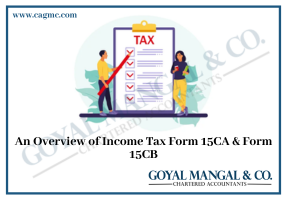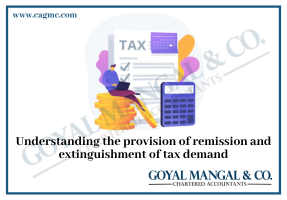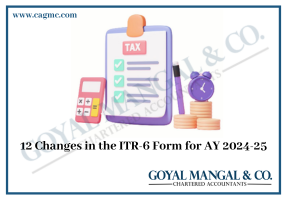
Buying a home is a significant investment for most people. To ensure that the investment is safe, the government has introduced various regulations to protect the interests of homebuyers. Two important regulations that a homebuyer should be aware of are the Real Estate (Regulation and Development) Act (RERA) and Income Tax laws. In this article, we will discuss a RERA & Income Tax Checklist for a Home Buyer.
|
Table of Contents |
Quick Look
In this article we are going to discuss about RERA and Income Tax lets first understand the meaning of RERA and a brief on the Income Tax relevance for buying a property.
A key law, the Real Estate Regulation and Development Authority (RERA), was created to protect the rights of consumers while promoting real estate and establishing a clear process for buyers. It also aims to establish a quick dispute resolution process in this sector.
It is important to check whether the real estate project you wish to invest in has been registered with RERA is crucial for house buyers. The contractor must provide information about the project’s registration number, completion date, and other relevant details. This rule ensures that the builder cannot use the funds for any other purpose until they receive the due approvals from CAs and Project Engineers.
Understanding RERA
The Real Estate (Regulation and Development) Act, 2016 (RERA) is a landmark law that aims to protect the interests of homebuyers and promote transparency in the real estate sector. Under RERA, all real estate projects must be registered with the regulatory authority before marketing and selling. RERA also mandates that builders must disclose all relevant information about the project to the buyers, such as project completion timeline, construction quality, and financial statements.
Understanding Income Tax Laws
Income tax laws in India also have specific provisions that apply to homebuyers. Homebuyers can avail of tax benefits on home loans under Section 24 and Section 80C of the Income Tax Act, 1961. Section 24 provides for a deduction of up to Rs. 2 lakh on the interest paid on a home loan, while Section 80C provides for a deduction of up to Rs. 1.5 lakh on the principal repayment of the home loan.
Benefits of RERA
These are the following benefits under RERA to the home buyers:
- Registration with RERA: It is required to register with RERA before to launch for any real estate project with a land area greater than the mentioned square metre in the rule. This is applicable to residential and commercial enterprises alike. To provide the customers with greater transparency, this has been put in order. Therefore, a buyer of a home can confirms on the RERA website whether the real estate project they wish to invest in has been registered.
- Construction Status Update: RERA requires all builders and real estate developers to update the specifics of their projects every three months. This has been done to make it possible for prospective homeowners to stay informed about the status of the construction and other relevant information.
- Transfer to Escrow Account: RERA requires all developers and constructors of real estate to deposit 70% of consumer payments into an escrow account. Developers can only access this money after receiving the required CA and project engineer approvals. This regulation makes sure that the homebuyers’ money is secure and is only utilized for what it was intended for.
- Standardisation of Sale Agreement: RERA requires that the builder or project promoter and the home buyer participate into a standard model sale agreement. This action has been taken to safeguard homebuyers against contract failures and to put promoters and buyers on an equal footing in terms of fines and other fee.
- Advance Payment: After the implementation of RERA, a builder or promoter is no longer permitted to request an advance payment that is greater than 10% of the project’s estimated cost. If they want to charge more money, they must formally contract with the buyer and duly register the property.
- Term of Defect Liability: According to RERA, the developer is accountable for any structural flaws in the property or problems brought on using subpar materials. As a result, a home buyer can now hold the developer accountable for any such issues that arise during the first five years, and the developer is required to either pay for the necessary repairs or compensate the customer, whichever option is more feasible.
- Carpet Area Specification: Developers are now obligated to mention the carpet area of the house, which is the area inside the four walls and includes rooms, this contrasts with previous practices where developers would influence home purchasers by specifying the built-up or super built-up areas. This is done to promote transparency from the perspective of home buyers.
- False Information Repercussion: The home buyer has the right to request a complete refund if the builder or developer requests an advance payment from them based on inaccurate information or fraudulent advertising.
- Penalty: According to RERA, the home buyer has the right to terminate the contract if the builder does not provide ownership of the property as promised. In this situation, the builder would be required to reimburse the full price. However, until possession is granted, the builder must make monthly interest payments on the sum paid if the home buyer chooses to proceed with the project.
- Alterations in Sanctioned Plan: If the developer wants to change any characteristics in the property or flat, they may only do so with the buyer’s consent.
- Grievance Redressal: The home buyer may file a complaint with RERA if they have any issues or grievances regarding the property.
RERA Checklist for Home Buyers
RERA is a law that was introduced to protect the interests of home buyers and promote transparency in the real estate sector. The following is a checklist that a home buyer should consider under RERA.
- Check if the project is registered under RERA: The first and most crucial step is to check if the project is registered under RERA. RERA mandates that all ongoing and new real estate projects with more than eight units should be registered with the regulatory authority.
- Verify the builder’s Credentials: Verify the builder’s credentials and their previous projects to ensure that they have a good track record. This can be done by checking the builder’s website, reviews, and ratings on various online portals.
- Check the Carpet Area: RERA mandates that the builder should mention the carpet area of the property and not the built-up area or super built-up area. Ensure that the carpet area mentioned in the agreement matches the RERA-approved plans.
- Verify the Possession Date: The builder should mention the possession date in the agreement. Ensure that the possession date is realistic and not too far-fetched.
- Check the Payment Schedule: RERA mandates that the payment schedule should be linked to the construction stage. Ensure that the payment schedule is as per RERA guidelines and not in favor of the builder.
Income Tax Checklist for Home Buyers
Income tax laws also play a significant role in a home buyer’s decision-making process. The following is a checklist that a home buyer should consider under Income Tax Laws. .
- TDS Deduction: The correct answer is when you buy an immovable property other than agricultural land for more than 50 lakh rupees or when the property’s stamp duty value exceeds 50 lakh rupees, and you buy it from a resident buyer.
If there are two or more buyers, each buyer must independently deduct TDS under their own PAN number or TAN number, as applicable.
If the seller is a resident, TDS must be deposited within 30 days after the end of the month in which it was deducted. In the case of a non-resident, TDS must be subtracted from each payment made and deposited before the seventh day of the next month in which the TDS has been subtracted.
Regardless of the Sale Consideration, you must deduct TDS if you buy the property from a non-resident buyer. The second crucial decision is how much TDS you should be deducting, after you have established whether you are required to do so or not.
- Resident Seller: If the seller is a resident, the TDS rate will be 1% of the higher of the whole selling price or stamp duty value. Additionally, you won’t need to get a TAN number; just possessing a PAN number would do.
You must make sure that the vendor gives you their PAN number for the 1% charge mentioned above to be applied. Additionally, you will need form 26QB to submit the TDS Return.
- Non-Resident Seller: Things become a little more complicated if the vendor is a non-resident. A rate of 20% (plus cess and fee) will be subtracted if the seller has owned the property for longer than two years. TDS will be taken out at a rate of 30% if the property is owned for less than two years. (Plus, cess and surcharge). The TDS in this situation should ideally be subtracted from capital gains, but the income tax officer will determine what those gains are. It would be safe to deduct the TDS on the total Selling consideration if the Income Tax Officer does not calculate the same.
Through Form 13, the seller may get a reduced deduction certificate in accordance with Section 197. Also, in this case you will be required to obtain a TAN (Tax Deduction and Collection Account Number) number. The form in which you will file the TDS return is form 27Q. - Tax Implications in case of Joint Owner: It is advised to buy the apartment with your spouse or another family member if you have a mortgage and are paying monthly payments. As a result, you can each receive a deduction for interest up to 2 lakh by using Section 24(b). The possibility of adding more joint owners can be taken into consideration if the annual interest payment exceeds 4 lakhs. A crucial point to remember is that just including a person’s name in the purchase agreement does not automatically constitute them a joint owner for purposes of the Income Tax Law. To be treated as joint owners under the Income Tax Act, it is crucial that they pay for the property. Future sales will also distribute capital gains among the joint owners, resulting in a lesser or no surcharge in cases when the sale profits are significant.
- Stamp Duty: Make sure that the stamp duty value, usually referred to as the ready reckoner rate in popular usage, and does not exceed 110 percent of the Agreement’s value. (i.e., the value mentioned in your purchase agreement). If so, the difference between the Agreement Value and the Stamp Duty Value must be paid as tax under the Income from Other Sources heading at the Slab rate.
Factors to consider before investing in a Real Estate
The main thing to consider when investing in real estate is if the property is worth the money.
Even though it may seem laborious, there are just a few necessary conditions before buying a home, such as carefully analysing your selections in relation to your needs and budget. For the majority of buyers, this is an once-in-a-lifetime investment, therefore it is crucial to know how to get the best value possible. The following are some things you should consider while making your very first purchase.
- Analyse the track record of Builder: When investing in real estate, it’s important to know a developer’s reputation. While internet reviews and ratings can be useful in narrowing down the best developers, it’s also important to ask around about a builder’s track record in person. Now that RERA is in effect, it is simple to learn about a builder’s history, completion schedule, level of building, etc.
- Project: What kind of project will be undertaken is a crucial factor to consider when purchasing a home. Is it a joint development project, a slum redevelopment project, a redevelopment project, or a Greenfield project? Making the Society a party to the agreement is advised in the case of a redevelopment project.
- Title: It is crucial for a buyer to be aware of any encumbrances on the project’s title. RERA mandates that a promoter present several documents such as approved plan, development agreement, CERSAI (The Central Registry of Securitisation Asset Reconstruction and Security Interest of India) Report etc. As a conscious buyer you should verify whether the following documents are filed regularly by the promoter of the project. Non filing of these documents regularly is a red flag and you should be more alert before entering into any transactions with such a promote.
Before making a purchase decision, prospective homeowners should think about additional variables in addition to those on the checklists, such as pricing, location, amenities, and legal documentation. Making an informed choice is crucial.
Conclusion
Buying a property is a significant financial decision, and it is essential to consider all the factors that can impact your finances. By following the RERA and Income Tax Checklist for a Home Buyer, you can ensure that you make an informed decision and avoid any financial pitfalls. Make sure to verify the RERA compliance status of the project and consider the Income Tax implications of buying a property before making your purchase.







